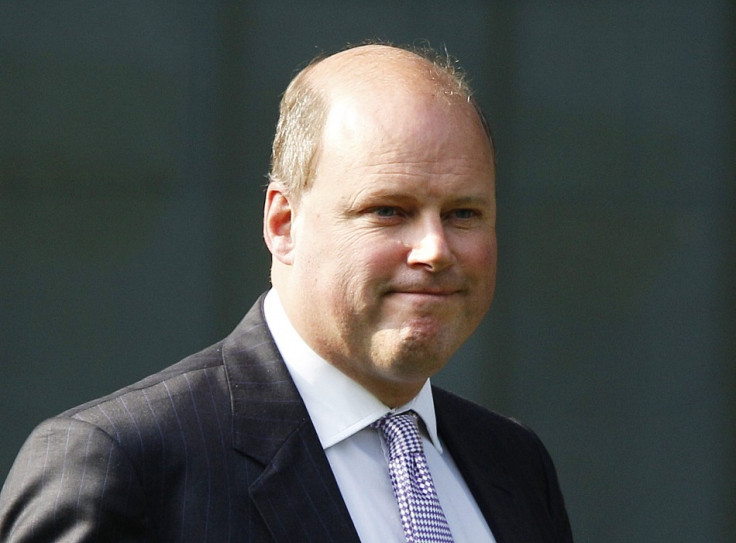Stephen Hester Pushed by RBS Board, not George Osborne, Says Treasury

The Treasury has hit back at suggestions it forced the RBS board to oust Stephen Hester as chief executive, insisting the decision was made by the bank alone.
In a statement to parliament, economic secretary Sajid Javid told MPs it was "a decision for RBS and its board", and said Chancellor George Osborne had not met with Hester for some weeks.
However, Javid did reveal the chancellor had met with Chairman Sir Philip Hampton in the week before Hester's announcement and had been informed of the board's decision to have him leave the bank.
An anonymous source in the Telegraph said there was "no love lost" between Osborne and Hester, who will likely leave by the end of 2013 and take home a pay-off of up to £5.8m.
The morning after Hester's announcement, RBS shares dived by as much as 7% in early trading, wiping around £2bn of the bank's market value.
Hester had been with RBS since 2008, when he was tasked with reforming its balance sheet in the wake of its near collapse during the financial crisis. A £45bn government bailout saved RBS from bankruptcy and the taxpayer has an 82% stake in the bank as a result.
RBS had built up a portfolio of toxic assets, which have now been washed away by Hester's reforms. His objective was to turn the bank away from its risky investment banking past and toward a future focus on supporting lending to the UK's real economy of consumers and small businesses.
He had wanted to oversee RBS's eventual return to the private sector, which is said to be nearing, but the board - with the rumoured support of Osborne - said they wanted a new chief executive for the privatisation phase. Hester described his time at RBS as "difficult and bruising".
'Safer, stronger and better'
Osborne has publicly lavished praise on Hester's time at RBS.
"When Stephen Hester took on the job it was a bust bank with a broken culture and posed a huge risk to financial stability. RBS today is safer, stronger and better able to support its customers," Osborne said.
"I want to commend Stephen Hester for everything he has done to make this turnaround possible. The size and complexity of the bank has been significantly reduced, with a far greater focus on serving its UK customers.
"Stephen Hester has made an important contribution to Britain's recovery from the financial crisis.
"Having brought RBS back from the brink, now is the time to move on from the rescue phase to focus on RBS being a UK bank that provides greater support to the British economy, helping businesses and job creation here, and which can return to the private sector in a way that ensures value for the taxpayer."
RBS has already returned £5.5bn in fees to the government. Accounting for inflation and deducting the fees paid back so far, the government would need to make around £46bn from the sale of its RBS stake to break even.
The average price the government paid to purchase RBS shares during the bailout, which came in two stages, was 502.26p per share. RBS calculates that to break even the average sale price will have to be 440.64p.
Labour's Chris Leslie, the shadow financial secretary to the Treasury, has accused the government of a "shambolic and uncertain approach" to RBS.
© Copyright IBTimes 2025. All rights reserved.






















